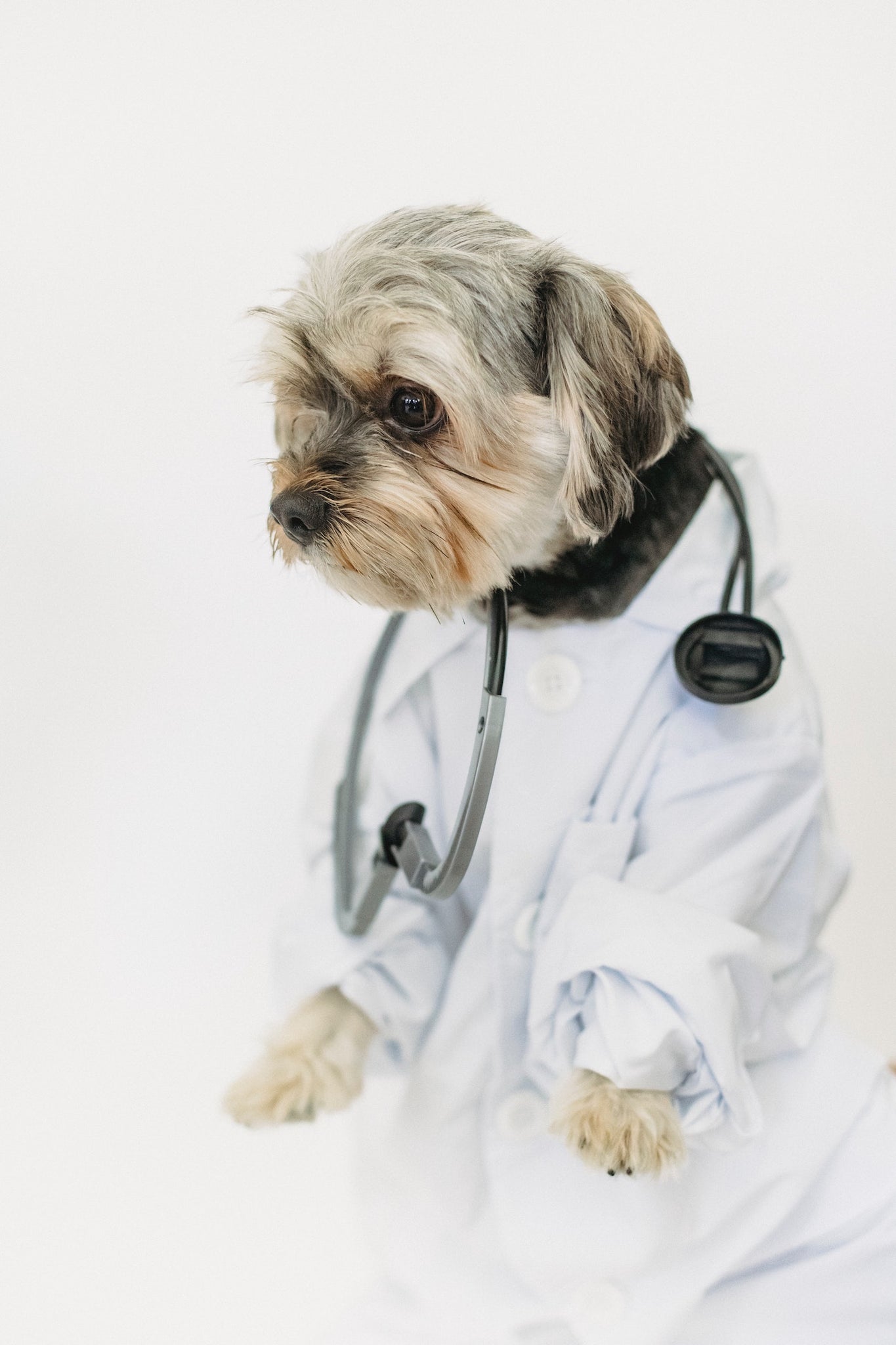Common (nutritional) Diseases in Dogs
by Auriane Hurtes MSc Nutritionist
Over the last 70 years, dogs have been increasingly suffering from metabolic issues (e.g., obesity, diabetes) and nutritional disorders.
The main culprit? A booming pet food industry often prioritising profit over animal health, offering affordable, convenient food that is not adapted to our pups’ digestive system. Using cheap ingredients and being highly processed, poor quality diets can lead to, or worsen, disorders. This is why preventive nutrition is so important for your dog’s health.
3 of the most common diseases our pooches suffer from include liver disease, kidney disease (or failure) and pancreatitis. Let’s take a look at each individually and see how diet can play a preventative or managing role.
Liver Disease:
Critical role: The liver breaks down food for the body to use and breaks down medicine and chemicals. It also filters the blood and passes through toxic substances (toxins) and waste products for elimination by the kidneys.
Cause: The more your dog is exposed to toxins, the more likely his or her liver will become damaged from over working to break them down. Toxins come from many sources including:
- Heartworm drugs
- Dewormers
- Flea & tick pesticides
- Vaccines
- Medications
- Chemical cleaners
- Pesticides & herbicides
- Processed foods
- Food additives
- Mycotoxins from cereal grains
- Environmental toxins
- Heavy metals
- Tattoo or microchip ID
- Viruses
- Autoimmune diseases
Due to the liver’s ability to regenerate itself, spotting liver disease is very difficult before it is too late. Early signs include:
- Digestive disorders (constipation, diarrhea, gas or bloating)
- Dry, brittle or infected nails
- Dull eyes
- Eye discharge or a pinkish eye
- Corneal or retinal disorders
- Sinus issues
- Dark urine
- Loss of appetite
- Fatigue
- Ligament and tendon issues
- Irritability or aggression
Management: How to prevent liver disease? Tips to limit damage to your dog’s liver:
- Remove unnecessary toxins from your dog’s environment - pesticides, herbicides, unnecessary vaccinations and drugs
- Remove toxic foods from your dog’s diet: processed foods are sources of toxins from mycotoxins to toxic by-products. It’s noteworthy that synthetic vitamins and minerals add stress on the kidneys and liver.
Feeding your dog a wholesome fresh diet with high quality protein will contribute to his or her liver’s health. The food can either be gently steamed at low temperatures like Puppy Gang Fresh Foods’ or raw but should be free from synthetic vitamins and minerals.
Ensuring your dog’s diet includes certain antioxidant rich fruits and veggies can help cleanse and support your dog’s liver, such as:
- Sprouts (clover, alfalfa or radish)
- Spinach
- Broccoli
- Celery
- Asparagus
- Lemons and apple cider vinegar
- Fermented vegetables
Note: Greens should be pureed or lightly steamed so that they are easily digested by your dog.
Kidney Disease:
Critical role: Another filtering organ, the kidneys remove toxins and waste products from the blood and regulate fluids.
The classic sign of kidney disease is your dog being more thirsty and asking to go out more (increased urination). The latter may lead to incontinence so your dog may have ‘accidents’ in the house.
Other signs include:
- Decreased appetite
- Weight loss
- Bad breath
- Vomiting and diarrhea
- Sore mouth
- Weakness
- Lack of energy and sleeping more
- Poor coat appearance
- Depression
Cause: Kidney disease can be caused by a long list of contributing factors, including over-vaccination and synthetic cortisone injections (used for arthritis and skin problems). Poor diet can also lead to the degradation of the kidneys.
Management: Prevention and early diagnosis is key since 75% or more of the kidneys’ function may be lost by the time signs of the disease appear.
In manageable cases, every effort must be made to reduce the load on the kidneys. The good news is that diet can do a lot in terms of preventing and managing kidney disease.
Avoid prescription diets which will nutritionally starve your dog. It is important to feed a fresh wholesome diet like Puppy Gang Fresh Foods with high quality protein and plenty of dark leafy greens to limit phosphorus and blood urea nitrogen (BUN).
Feed your dog food at room temperature, not cold but don’t heat it in a pan or microwave.
Avoid synthetic vitamins/minerals and perhaps most importantly, keep your dog hydrated!
Pancreatitis:
Critical role: Pancreatitis describes the inflammation of the pancreas which secretes important enzymes for digestion and hormones that regulate blood sugar levels. As such, pancreatitis is closely linked to diabetes and nutritional management is very important.
There are two forms of pancreatitis: acute and chronic.
Acute pancreatitis can be life-threatening and must be treated immediately.
Symptoms include:
- Abdominal pain
- Hunching the back as if to protect the belly
- Fever
- Complete loss of appetite
- Dehydration
- Diarrhea
- Severe & frequent vomiting
- Blood in faeces
- Lethargy or restlessness (reluctance to walk)
If you see any of these signs consult your vet right away as acute pancreatitis can lead to very severe problems such as organ failure (heart, lungs, kidneys) or in extreme cases, death.
Chronic Pancreatitis is a longer term, lower-grade form.
Symptoms include:
- Occasional vomiting
- Colitis
- Lack of appetite
Longstanding chronic pancreatitis can lead to type 1 diabetes or pancreatic insufficiency.
Cause: Acute Pancreatitis is often associated with a high fat diet, usually overindulgence in table scraps or fatty foods. Pancreatitis attacks can also come on after a raid on a garbage can or compost pile (i.e., garbage gut).
Pancreatitis can be triggered by other factors:
- Trauma
- Infection
- Autoimmune disease
- Cancer
- Concurrent hormonal diseases (diabetes, hypothyroidism, hypercalcemia)
- Certain drugs (sulfa antibiotics, seizure medications, chemotherapy)
- Insecticide exposure
N.B: Obesity increases the risk of developing Pancreatitis.
Management:
If your dog tolerates it (i.e., vomiting doesn’t worsen), he or she should eat frequent, small meals. Exercise is very important since it improves digestion and bowel movement, as well as keeping their weight under control.
A good quality diet, low in starch, sugar and fat, should be given to avoid inflammation in the digestive tract and help with the condition.
If your dog suffers from pancreatitis, fatty foods such as oily fish (e.g., salmon), pork and beef should be avoided. The majority of a dog's diet should consist of protein from lean meat.
The most important thing is to avoid kibble. If possible, feed fresh whole foods, preferably gently cooked such as Puppy Gang Fresh Foods’, to make it easier for your dog to digest while limiting nutrient losses resulting from the heat.
With any of these illnesses, in the case of treatment (rather than prevention), it’s important to work closely with a holistic veterinarian, exploring the best options for your pup, from TCVM (Traditional Chinese Veterinary Medicine) to herbalism and homeopathy.
Want to try Puppy Gang Fresh Foods? They are currently offering 50 percent off their 7 pack variety trial pack for new customers to try! If you have any questions about feeding your puppy a whole foods diet please email us at info@puppygangfreshfoods.com

